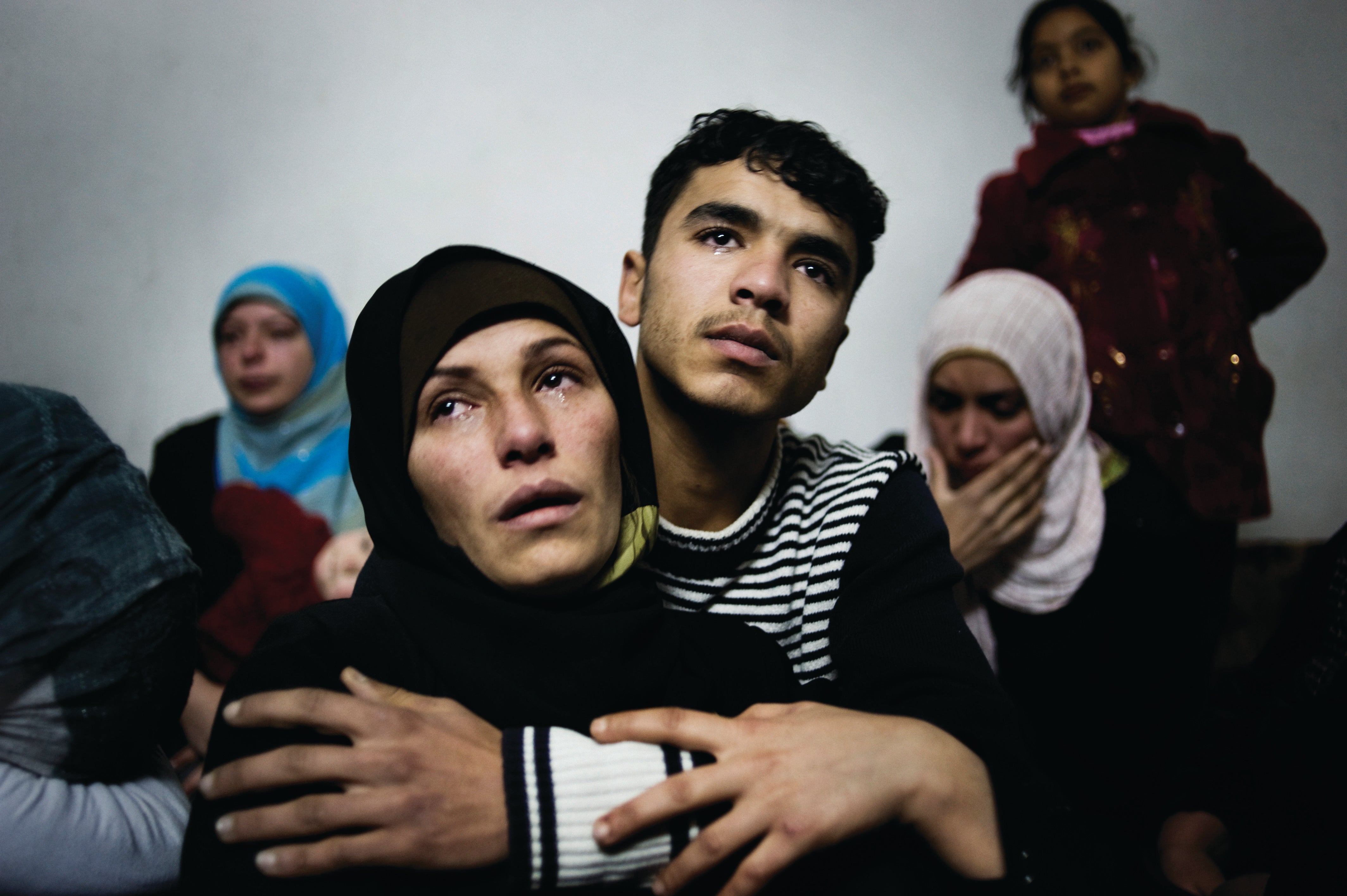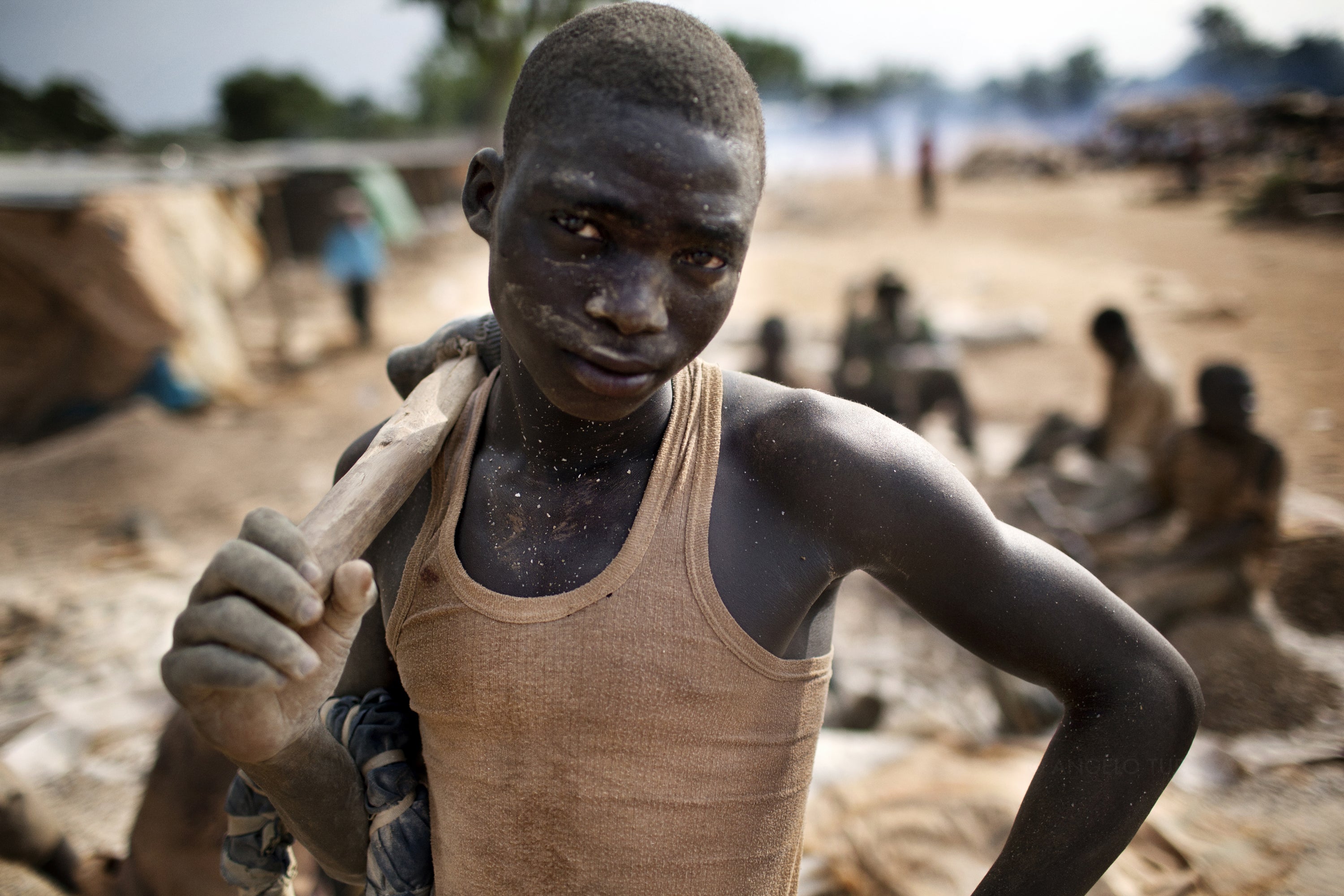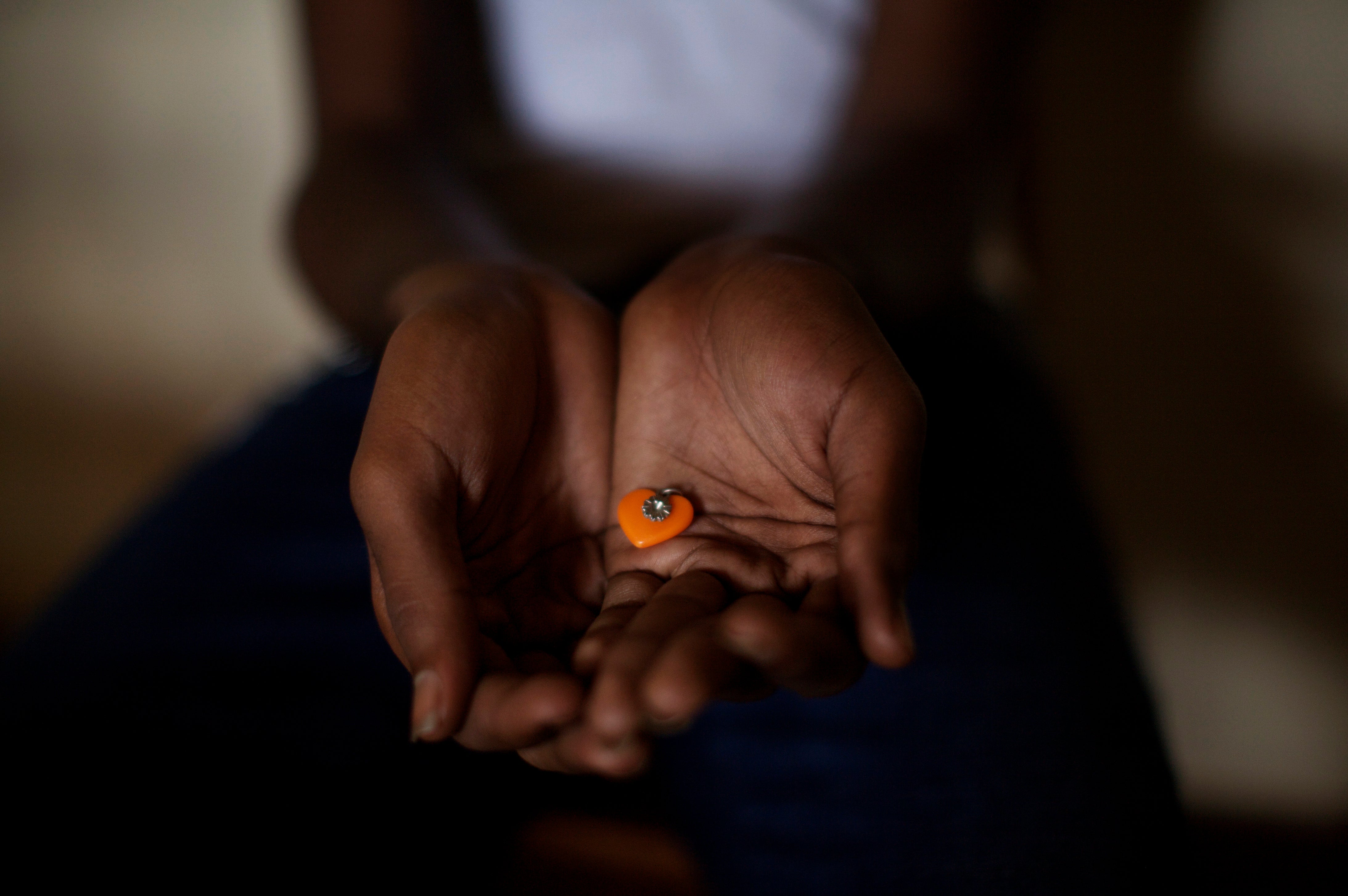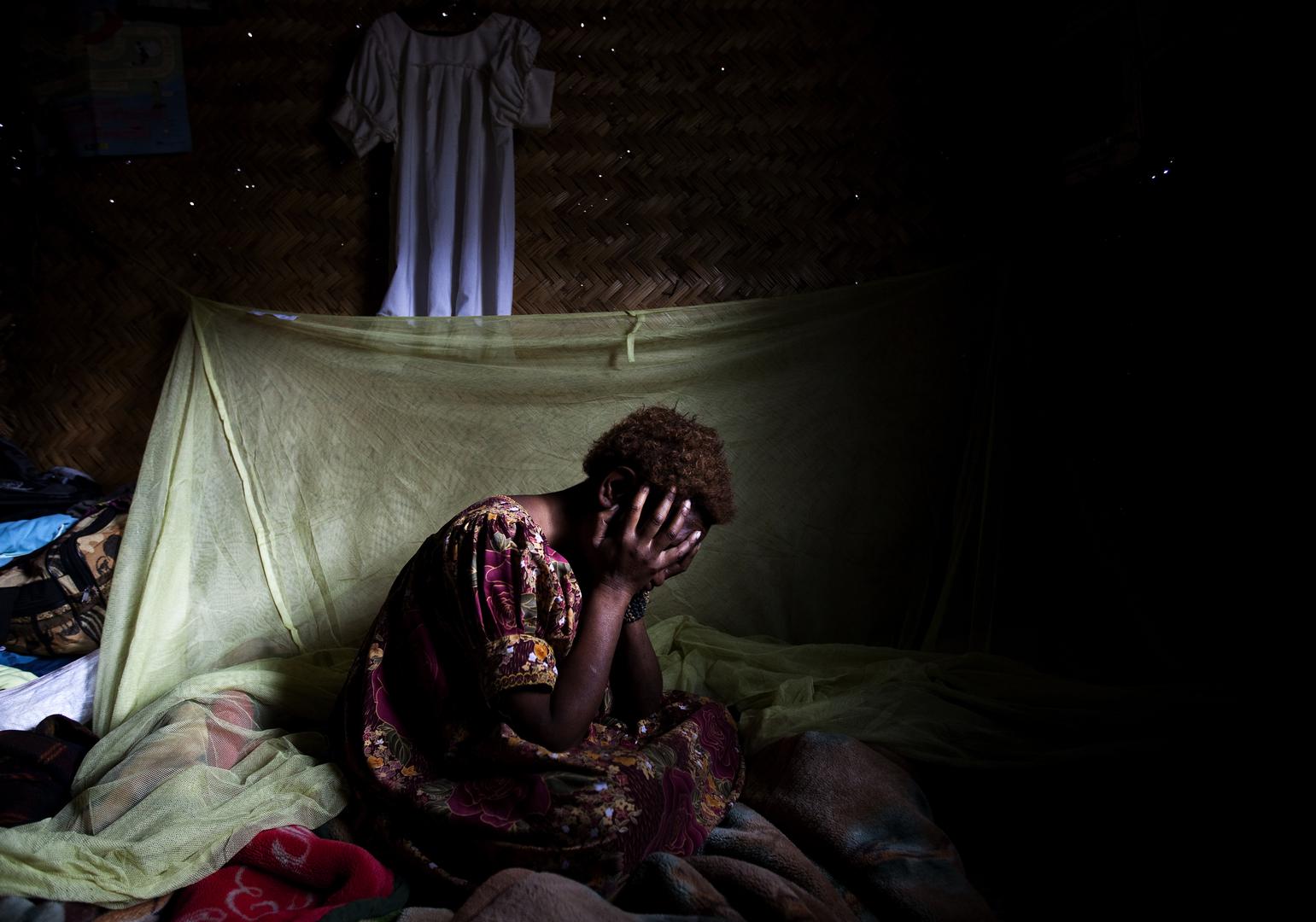Despite being granted status as a candidate for European Union membership in March, Serbia did little to improve its human rights record in 2012. The situation of ethnic minorities remains precarious, especially for Roma. Journalists still face a hostile environment, despite some progress in bringing perpetrators of attacks to justice. The asylum system remains weak and overburdened. Relations with Kosovo remain tense, exemplified by Kosovo and Serbian police carrying out tit for tat arrests of Serbian election officials and Kosovo Albanian activists in the run-up to the May 6 Serbian elections.
Accountability for War Crimes
There was ongoing progress in domestic war crimes prosecutions. In September, the Belgrade War Crimes Chamber convicted 11 members of the Kosovo Liberation Army’s (KLA) “Gnjilane group” to a combined total of 116 years in prison for crimes against civilians, mainly Roma and Ashkali, during the 1999 Kosovo war. In June, the chamber sentenced 14 former members of the Yugoslav People’s Army (JNA) to a combined total of 126 years in prison for war crimes against Croat civilians in the Croatian village of Lovas in 1991. The Serbian war crimes prosecutor indicted three people for crimes against civilians during 2012. Sixteen cases were pending at this writing.
However, Chief Prosecutor Serge Brammertz at the International Criminal Tribunal for the former Yugoslavia (ICTY) in a June report criticized Serbia’s lack of efforts to uncover the networks that helped war crimes fugitives wanted by the ICTY to evade justice. The Serbian war crimes prosecutor’s office subsequently began investigating 13 suspects, including a former high-ranking security official. In his report Brammertz also criticized Serbia’s failure to sign a proposed protocol on war crimes cooperation between the Serbian prosecutor and his Bosnian counterpart.
Freedom of Media
Journalists continue to face a hostile environment, although the authorities brought some perpetrators of attacks on journalists to justice.
In February, a cameraman from Studio B television was punched and kicked in the capital Belgrade. The sole assailant was arrested by police and charged in June for the assault. In February, a Belgrade appeals court increased the prison sentences of two men for the 2008 attack on journalist Bosko Brankovic while he reported on a demonstration in support of Radovan Karadzic, the Bosnian Serb wartime president, on trial at the ICTY for genocide and crimes against humanity. The court upheld sentences for two others.
Despite having 24-hour police protection since October 2005, threats continued against Vladimir Mitric, a journalist specializing in uncovering corruption. In September, Mitric was threatened twice by the same person and told not to report on particular individuals. On the second occasion the person making the threats was accompanied by a police officer who had been responsible for Mitric’s protection. The person making the threats was charged with minor offences in September, but at this writing the police officer had not been disciplined.
In October, the homes of three journalists were attacked, although it is unclear whether the attacks were linked to their reporting. Unknown assailants lobbed Molotov cocktails at the Belgrade homes of Biljana Vujovic, a presenter at TV Kopernikus, and Damir Dragic, director of Belgrade-based tabloid Informer. No one was injured but Dragic’s car was destroyed by the fire. It is unclear whether the incidents were connected to their reporting. An explosive device, which did not detonate, was placed near the home of Tanja Jankovic, an investigative journalist at TV B92 in Vranje, southern Serbia. At this writing, all three incidents were under police investigation.
In July, a Belgrade appeals court sentenced freelance journalist Laszlo Szasz to 120 days in prison for a 2007 commentary criticizing the leader of the Hungarian nationalist 64 Counties Youth Movement. Szasz was released after receiving a presidential pardon on August 3.
In September, Information Minister Bratislav Petkovic announced that the government was preparing legislation guaranteeing freedom and independence of the media. The same month, the government announced it would establish an international commission to investigate unsolved murders of three prominent journalists more than a decade ago.
Treatment of Minorities
Roma continued to experience harassment, threats, discrimination when accessing education, and problematic forced evictions.
In April, around 1,000 Roma were forcibly evicted from the Belvil informal settlement in Belgrade. Those internally displaced Romani families from Kosovo and those with permanent residency in Belgrade were rehoused in metal containers on the outskirts of Belgrade. Families with residency registered in other parts of Serbia were returned there, including four families returned to Nis, southern Serbia, where they were housed in an abandoned warehouse without access to water or electricity.
On May 1, 15 to 20 masked persons armed with baseball bats approached the Jabucki Rit container settlement occupied by Roma. They shouted racist slogans and drew a swastika on one metal container. At this writing, police had made only one arrest and the case remained under investigation.
There was progress in addressing problems of undocumented persons, many of whom are Roma. A new law adopted in September removes administrative barriers and simplifies registration procedures for birth certificates.
Tension rose in the Vojvodina region, northeast Serbia, between members of the Serb majority and Hungarian minority. In September, approximately 20 Serbs armed with iron rods attacked eight Hungarian children and young adults in the town of Subotica, allegedly because the victims spoke Hungarian. Police were investigating at this writing.
Sexual Orientation and Gender Identity
Serbia made some progress in protecting the rights of lesbian, gay, bisexual, and transgender (LGBT) people. In February, Simo Vladicic was sentenced to a three-month jail term for making threats against LGBT people via a Facebook group called “500,000 Serbs against Gay Pride.” In March, a Belgrade court sentenced Mladen Obradovic, leader of the right-wing extremist movement Obraz, to 10 months in prison for threatening gays and inciting hatred in the run-up to the 2009 Gay Pride Parade, which was then cancelled on security grounds. In a separate case, Obradovic was sentenced to two years in prison in April 2011 for inciting violence during the 2010 Gay Pride Parade, a sentence that was under appeal at this writing. The Serbian Ministry of Interior banned the October 6 parade and other public gatherings citing security reasons, but took no measures to try to facilitate the parade in face of the threats of violence. Serbian authorities also banned the Belgrade Pride Parade in 2011 due to violent incidents during and after the 2010 event that injured policemen and participants.
Asylum Seekers and Displaced Persons
The Office of the United Nations High Commissioner for Refugees (UNHCR) said in September that the defects in Serbia’s asylum system mean that it cannot be considered a safe country of asylum or safe third country and that countries should refrain from sending asylum seekers from other countries back to Serbia. Hungary, Greece, and Turkey are among the countries sending asylum seekers back to Serbia. In the first eight months of 2012, 1,454 asylum seekers were registered in Serbia, down from 2,134 during the same period in 2011.
There were concerns about inadequate capacity in Serbia’s two asylum centers, which can only accommodate a total of 280 people. The Asylum Office, which makes initial decisions on asylum claims, has not granted refugee status or temporary protection to any applicant since it assumed responsibility for the asylum procedure in 2008.
There was little progress towards finding a lasting solution for refugees and internally displaced persons (IDPs) from the Balkan wars. According to the UNHCR, in July there were 66,563 refugees in Serbia, most from Croatia, and 228,215 IDPs of whom 210,146 hail from Kosovo. A successful international donors conference in Sarajevo in April raised financial support for the housing needs of 74,000 of the most vulnerable IDPs in Serbia, Bosnia and Herzegovina, Croatia, and Montenegro.
In October, the EU renewed calls on Serbian authorities to stop the influx of asylum seekers, mainly Roma, to EU countries, adding that failure to do so risked losing the right for Serbian citizens to travel to the EU without visas. There were credible reports by international human rights NGOs throughout 2012 that Serbian border guards prevent persons of perceived Romani origin from crossing the border from Serbia into Hungary.
Key International Actors
On March 1, EU heads of state granted candidate status to Serbia following a February 28 recommendation by the General Affairs Council, which made clear the decision was linked to Serbia’s progress on cooperation with Kosovo, including on management of their border, and made no reference to human rights. The European Commission’s annual progress report on Serbia stressed the need tostrengthen the rule of law, ensure judicial reforms and protect vulnerable groups, particularly Roma. The commission said that Serbia needed to increase efforts to fight corruption and protect freedom of expression in the media.
A joint US and EU Balkans tour led by US Secretary of State Hillary Clinton and EU High Representative Catherine Ashton in late October and early November failed to emphasize the importance of improving human rights protection in Serbia and instead focused on political dialogue between authorities in Belgrade and Pristina.
In June, the European Committee for the Prevention of Torture (CPT) published a report on its 2011 visit to Serbia expressing concerns about allegations of ill-treatment of detainees by law enforcement officials and overcrowding in all prisons it visited.
The UN special rapporteur on human rights defenders expressed concern about allegations of harassment of LGBT human rights defenders in Serbia in her February global report.
In April 2012, Serbia signed the Council of Europe (CoE) Convention on preventing and combating violence against women and domestic violence.
Kosovo
There was no significant improvement in human rights protection in Kosovo in 2012. Tensions in the divided north sometimes flared into violence. Roma, Ashkali, and Egyptian (an Albanian speaking group that claims roots in Egypt) continue to be marginalized and vulnerable to discrimination. The justice system remains poor with large case backlogs. Mechanisms for human rights protection remain weak.
On September 10, the countries comprising the International Steering Group, which oversaw Kosovo after it unilaterally declared independence from Serbia in 2008, proclaimed an end to its supervision of Kosovo’s self-governance. The decision signals a downgrading of international engagement.
Protection of Minorities
Roma, Ashkali, and Egyptians (RAE) remained among the most vulnerable groups in Kosovo. They continued to face discrimination in areas such ashousing, education, and access to public services. A June 2012 United Nations Development Programme (UNDP) report found that around three-quarters of RAE lack formal employment, compared to around 45 percent of the general population.Many are displaced and unable to rebuild or return to their original homes.
Tensions between the Serb minority and the Albanian majority remained high in 2012, particularly in the divided city of Mitrovica in northern Kosovo. In April, an explosion in the majority Serb “Three Towers” neighborhood in the city killed an ethnic Albanian man and wounded two of his children. Police were investigating at this writing. In July, a Serb community activist, Milovan Jevtic, and his wife were shot dead in their home south of Pristina, the capital. Jevtic worked for the return of Kosovo Serb families and peaceful coexistence with Kosovo Albanians, raising concerns that the deaths may have been intended to discourage such returns. European Union Rule of Law Mission (EULEX) and local authorities were conducting a joint investigation at this writing.
Following confrontations in June between members of the Kosovo Police Service (KPS) and ethnic Serbs at four border crossings, unknown perpetrators in Pristina pelted two buses carrying Serb children aged between 8 and 16 with Molotov cocktails and stones. Sixteen children sustained light injuries. Police were still investigating at this writing.
Despite these events, the KPS recorded only 16 inter-ethnic incidents during the first eight months of the year, a reported decline from 2011, when 60 inter-ethnic incidents were recorded. They comprised two attacks resulting in serious injuries and five in light injuries, seven other unspecified physical attacks, and two cases of property damage. There were concerns among international observers that many inter-ethnic incidents are unreported, unregistered, and misclassified.
Return of Refugees and Internally Displaced Persons
During the first 10 months of the year, the Office of the United Nations High Commissioner for Refugees(UNHCR)registered 785 voluntary returns, including those outside Kosovo and internally displaced persons (IDPs), compared to 989 returns during the same period in 2011.
Deportations to Kosovo from Western Europe continued, with limited assistance provided upon return. Between January and September, the UNHCR registered 1,717 forced returns to Kosovo, including 546 deportations of minorities, mostly from Sweden (235) and Germany (196): 327 Roma, 105 Ashkali, 2 Egyptians, 21 Serbs, 32 Bosniaks, 44 Gorani, 7 Turks, and 8 Albanians to Serb majority areas.
Roma, Ashkali, and Egyptian forced returnees continued to face particular hardships upon return, including difficulties accessing public services.A United Nations Children Fund (UNICEF) report in March stated that three out of four children deported from Germany drop out of school due to language barriers.
There was little progress in implementing two national strategies designed to facilitate the integration of returnees (the Strategy for Reintegration of Repatriated Persons) and for Roma generally (the Roma, Ashkali, Egyptian Integration Strategy), with central and local authorities failing to allocate needed resources, and local authorities often unaware of their responsibilities.
At this writing, the lead-contaminated Osterode camp outside Mitrovica was still open, with five remaining Romani families waiting to be resettled. Work had begun to construct apartments in the north to house the families.
Impunity, Accountability, and Access to Justice
On November 29, the International Criminal Tribunal for the former Yugoslavia (ICTY) acquitted Ramush Haradinaj, the former prime minister of Kosovo, and his two co-defendants, Lahi Brahimaj and Idriz Balaj, former Kosovo Liberation Army (KLA) commanders, after their retrial for crimes against humanity against Serb Roma and Albanian civilians in the Jablanica detention camp in 1998.
The EULEX special investigation team continued its investigation into allegations that some KLA members, including senior officials in Kosovo, had participated in post-war abductions, enforced disappearances, killing of Serbs, and organ trafficking.
In the first nine months of 2012, EULEX judges handed down three war crimes judgments, including in May sentencing Zoran Kolic to 14 years’ imprisonment for war crimes against prisoners in Lipjan prison in May 1999, and confirmed one new war crimes indictment in October. During January and September, local judges handed down 20 other verdicts. As of October 78 war crimes cases were under investigation and in November, EULEX police arrested three former KLA members suspected of war crimes against civilians during 1998-1999. At this writing the case was being investigated by the Special Prosecutorial Office, which did not render details about the charges.
In November, the Supreme Court of Kosovo ordered the retrial of Fatmir Limaj and three other former KLA members on charges of war crimes against Serb and Albanian civilians and prisoners of war held in a detention center in the village of Klecka in 1999. The four were acquitted in May by a Pristina district court, including a EULEX judge. In March, the same court acquitted six other defendants in the case.
Freedom of Media
The Kosovo National Assembly adopted a new criminal code in April containing provisions that criminalized defamation and force journalists to reveal sources, raising media freedom concerns. In light of those concerns, Kosovo President Atifeta Jahjaga in May sent the code back to the National Assembly for reconsideration. But in June, the assembly adopted the criminal code without revising the controversial provisions. In September, it finally approved government amendments abrogating the controversial provisions, which will be removed from the criminal code once it enters into force on January 1, 2013.
Threats against journalists continued to be a serious problem. In March, journalists at the Express newspaper received threatening phone calls following an article on corruption in the fuel industry. Halil Matoshi, an outspoken journalist reporting on corruption, was assaulted in Pristina in July by three unidentified men, one of them armed with a knife. Matoshi escaped with minor injuries and the police were investigating at this writing.
In May, a EULEX judge at the Pristina municipal court confirmed indictments against Rexhep Hoti and four other staff at Kosovo daily Infopress and Skenderaj Mayor Sami Lushtaku for threats made against Balkan Investigate Reporting Network (a regional news group) Kosovo Director Jeta Xharra in 2009. In October, the Kosovo Special Prosecution Office launched a separate investigation against Lushtaku for threats made in March, May, August, and September against Adem Meti, a correspondent for the leading daily newspaper Koha Ditore, due to his reporting on corruption.
Key International Actors
The end of supervised independence of Kosovo on September 10 resulted in the closure of the International Civilian Office. EULEX’s mandate was extended until 2014.
UN Secretary-General Ban Ki-moon in July expressed concern over escalating ethnic tensions in northern Kosovo and stressed that the basic needs and rights of affected communities in the north must be democratically represented.
An October report from the European Commission recommended opening negotiations with Kosovo on a Stabilization and Association Agreement (SAA), a framework for closer relations seen as a prelude to candidate status for EU membership, subject to progress on rule of law, including cooperation with the EULEX task force, and respect for minority rights. The commission’s assessment made clear that signing the agreement would require tackling impunity and access to justice, improving media freedom, implementing programs to secure the rights of Roma, and taking steps to facilitate the return of displaced Serbs.
Following a July meeting with Kosovo President Atifete Jahjaga, European Council President Herman Van Rompuy stressed the need for progress on the rule of law, public administration reform, electoral reform, and outreach to minority communities.
In October, German Defense Minister Thomas de Maiziere said that the EULEX was “on the wrong track” and that its failure—together with that of the KPS—to deal with ethnic violence was placing an unreasonable burden on NATO forces. An OSCE report in October said authorities need to take concrete action to implement laws on anti-discrimination and protection against domestic violence, among others.
In October, Council of Europe (CoE) Secretary General Thorbjorn Jagland emphasized the importance of an effective investigation into allegations contained in the 2010 CoE report by Swiss Senator Dick Marty alleging that some KLA members, including senior officials in post-war Kosovo, had participated in the post-war abductions, enforced disappearances, and killing of Serbs, as well as alleged organ trafficking and organized crime, including weapons and drug smuggling.




